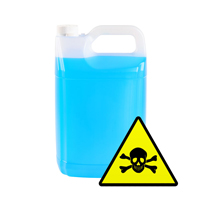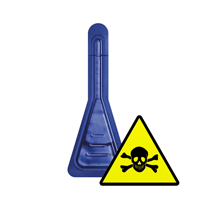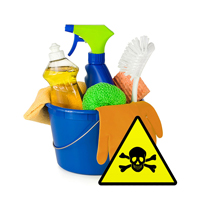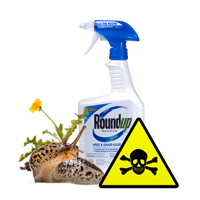Antifreeze

Call your vet immediately if you think your cat has drunk antifreeze.
Ethylene glycol is the active ingredient in antifreeze that is extremely toxic to cats. It is also found in some de-icer and screen wash products. Signs of poisoning appear in cats can appear in 30 minutes or up to 8 hours. As little as a 5ml teaspoonful can be enough to kill a cat, and unfortunately, as it tastes sweet to cats they will readily drink it. Therefore, it is very important to contact a vet immediately if you suspect that your cat has ethylene glycol poisoning.
Be careful where and how you store antifreeze, and any product containing ethylene glycol. Clear up any spills straight away.
Signs of ethylene glycol poisoning include:
- Becoming very quiet and still
- Wobbling and vomiting and falling over as if drunk
- Sleepy disposition
- Difficulty breathing
- Twitching eyes and muscles
- Seizures
Permethrin

Permethrin is an insecticide. It is safe for dogs and is commonly used in spot on flea treatments for dogs. However, it is toxic for cats and cats can become posisoned by when they are mistakenly treated with a flea spot on treatment that is formulated for dogs. They can also have milder effects if they brush up against a dog that has been recently treated with a flea treatment.
Permethrin poisoning usually take effect rapidly. Any product remaining on the coat should be washed out with cold water. Never use warm water as this will increase absorption.
Controlling convulsions is often difficult, and cats may need to be hospitalised for several days.
It's important to act quickly and contact your vet immediately.
Medicines

Some human medicines, including paracetomol, are extremely toxic for cats. However, it is safest to keep all medicines both for humans or pets, out of reach of cats, and only ever give them mediciation that has been prescribed by the vet.
Cleaning Products

Benzalkonium chloride is a type of detergent that is found in many household products including disinfectants, antiseptics and some patio cleaners. If cats lick surfaces that have been cleaned with products containg benzalkonium chloride hey can develop drooling, fever and tongue and mouth ulceration. Signs typically develop hours after exposure.
Weedkiller

Cats can become poisoned by weed killers by walking on areas that have been recently treated and then ingesting the product by licking their paws while grooming themselves.
Signs of posioning will depend on the chemical ingredients ingested, but can inlcude:
- Vomiting
- Lethargy
- Diarrhoea
- Tremours
- Abdominal pain
- Lack of eating
If you suspect that you cat has ingested weed killer or moss killer contact your vet urgently, and if possible, take a long the packaging of the product.